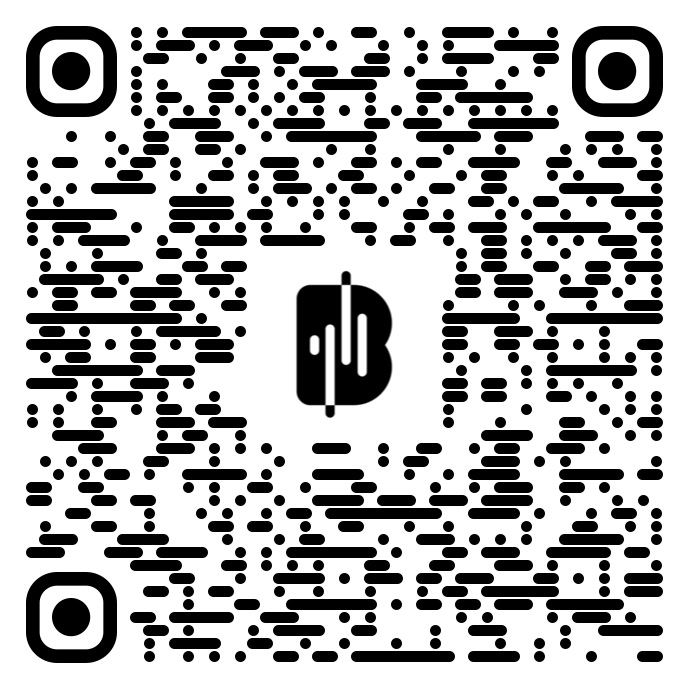English, being a global language, has been embraced and adapted by diverse cultures worldwide. However, variations still exist among different English-speaking societies. What sets American English apart is its vocabulary and dynamic expressions, which can sometimes pose challenges even to native English speakers outside the U.S.
The importance of understanding these distinct American English phrases goes beyond linguistic curiosity. For non-native English speakers, mastering these expressions paves the way for a deeper level of communication. It entails comprehending the contexts, subtleties, and cultural connotations that make the phrases integral to authentic and effective communication.
Here, we’ll uncover the depths of 25 distinct common English idioms and phrases, examining their meanings, contexts, and practical usage. Whether simple or advanced , these phrases will help you build relationships and blend into American society with ease.
1. Jump on the Bandwagon To "jump on the bandwagon" means to join a trend or follow what others are doing. The phrase often carries the connotation of doing something just because it’s trendy, rather than out of genuine interest.
If you join a social media trend because others are doing it, for instance, you’re jumping on the bandwagon.
2. A Piece of Cake When something is effortless or uncomplicated, Americans often use the expression "a piece of cake" to describe it. This idiom implies that the task at hand is so simple that it can be accomplished without much effort or difficulty.
When you use this phrase, imagine likening the task at hand to the ease of eating a slice of cake. It's easy!
For instance, you might say, "I thought the math exam would be tough, but it was a piece of cake."
You’ll find more ways to use this phrase (and others) in context on the BoldVoice app.
Take your free accent assessment Get to know your pronunciation level and get 7 days of lessons for free on the BoldVoice app.
Start Free Trial
3. Table an Item In American usage, when someone "tables an item," they set it aside for consideration at a later time. This is often used within the workplace .
This means they temporarily stop discussing or acting on it, intending to revisit it in the future. However, it's important to note that in British English , "tabling an item" means to bring it up for discussion immediately, which is the opposite of its American meaning.
4. Put Up Your Dukes "Put up your dukes” means readiness for a challenge or confrontation, whether physical or verbal, in a somewhat light-hearted manner.
A coach might tell his players to put up their dukes as a metaphor to prepare for a tough game, for instance. When hanging out with a friend, you may jokingly tell them to put up their dukes in preparation for how much fun you’re about to have together!
5. Plead the Fifth The phrase “plead the fifth” originates from the Fifth Amendment of the U.S. Constitution, which protects individuals from being forced to testify against themselves in criminal cases.
In the US, saying “I plead the Fifth” indicates choosing not to answer a question to avoid trouble. In a more casual setting , "plead the Fifth" is often used humorously or figuratively to avoid answering a question, especially when the answer might be embarrassing.
This phrase, while commonly used in casual conversation in America (and also in legal proceedings in a more literal sense), can be especially tricky for non-native English speakers to pronounce. The "fth" consonant cluster is a challenging series of sounds to pronounce in succession, but it can be simpler to break it down into its individual sounds before combining them.
First, get comfortable with the "f" fricative:
And then, the voiceless "th" sound :
When you feel ready, combine those sounds together until it feels natural. Continue your practice with some fun pronunciation exercises !
6. Break a Leg Incredibly, this phrase is actually polite !
This expression is commonly used to wish someone good luck before a performance or important event.
Check out BoldVoice coaches Eliza and Josh discussing this phrase and its unique origin in American lexicon:
7. Hit a Home Run If there's one thing that's classically American, it's baseball.
A home run is one of the most celebrated feats in baseball, symbolizing a clear and decisive success. When an American says that someone “hit a home run,” they mean that person achieved significant success or accomplished something exceptionally well.
For example, “We hit a home run with that marketing campaign; sales have doubled since its launch.”
8. Behind the Eight Ball When Americans say they're "behind the eight ball," they mean they're in a tough spot or facing difficulties.
This saying comes from the game of pool, where it can be challenging to win when a player finds themself positioned behind the eight ball.
So, if someone feels "behind the eight ball," it means they're dealing with challenges that make things tough for them.
9. Go Dutch In American culture, "going Dutch" refers to the practice of splitting the bill equally among friends or group members when sharing expenses.
This approach promotes fairness and equality, as everyone contributes equally to the cost of an activity or meal. For example, if a couple goes out on a date for Valentine's Day and each person pays for their own meal rather than one person paying for the entire bill, they are "going Dutch" on the date.
10. Spill the Beans The phrase "spill the beans" in American English means to reveal a secret or disclose information that was supposed to be kept confidential.
This expression is believed to have originated from an ancient Greek voting method in which beans were used to cast votes, and spilling the container would reveal the results prematurely.
Assuming someone says, "She spilled the beans about the surprise party," it means she let the secret slip and told others about the surprise party, spoiling the surprise.
11. It’s Lit The phrase "it’s lit" is a slang expression and one of the common English words used in daily life to describe something exciting, fun, or excellent.
It's often used to convey enthusiasm or approval about an event, experience, or situation. Note that this is relatively newer slang, and it tends to be used primarily by younger generations. Although a great expression, it's not appropriate in formal settings.
If someone says, "The party last night was lit," they mean the party was very enjoyable and lively.
12. Finger-Licking Good "Finger-licking good" is a phrase in American English used to describe food that is so delicious that you want to lick your fingers to savor every bit of it.
The expression implies that the food is exceptionally tasty and enjoyable. If, at a Fourth of July barbecue, someone says, "The ribs were finger-licking good," they mean the ribs were extremely delicious.
13. It’s All Downhill from Here The phrase "it's all downhill from here" is special because, despite being a common expression, it carries two opposing meanings.
On the one hand, "it's all downhill from here" can mean that the hardest part of a task is over, and everything will be easier from this point on. Think about riding a bicycle up a hill - once you've reached the top, you can then easily coast downhill.
On the other hand, something going "downhill" can also imply that it's going in a bad direction. In this sense, it would make sense to say "I started off the day by stubbing my toe, and it was all downhill from there."
For this expression, it's especially important to pay attention to context clues!
14. A Dime a Dozen The phrase "a dime a dozen" is one of the common English phrases in the U.S. that means something is common but not very valuable.
This saying comes from a time when items like eggs or fruit were sold at ten cents for twelve items, showing they were cheap and easy to find.
Assuming a person says, "Job applicants with basic computer skills are a dime a dozen," it means there are many people with basic computer skills, and they are easy to find.
15. Hit the Jackpot "Hit the jackpot" is an American phrase used to describe achieving great success or experiencing unexpected good fortune.
Originally derived from gambling, where it signifies winning a major prize, the term is now used more broadly. For example, if someone finally meets their ideal partner after many years, they might say they "hit the jackpot" in their personal life.
This expression has a similar meaning as "hit a home run," but it implies more luck. If your success is the result of hard work and talent, it's more accurate to say that you "hit a home run." If it's more based on chance, you might choose to say you "hit the jackpot" instead.
16. Walking on Eggshells When someone is "walking on eggshells," it means they're being very careful not to say or do anything that might upset someone else. This phrase suggests a high level of sensitivity and caution in their actions as if they're tip-toeing around potential conflicts.
For instance, if a friend has recently experienced a difficult life event and their emotions are particularly heightened, others might "walk on eggshells" around them so as to avoid upsetting them.
17. Bite the Bullet In everyday American English, when someone faces an undesirable situation, they might say they're "biting the bullet."
This phrase comes from the past, when soldiers would bite on a bullet during painful surgeries. When someone says, "I'm biting the bullet and doing my homework," they're saying they're tackling their homework even though it's hard.
18. Take It with a Grain of Salt When you're skeptical of something, you might "take it with a grain of salt." It means that you're not completely accepting that a particular statement as true.
When you take something with a grain of salt, you're being cautious, treating the claim with some doubt and not taking it too seriously. It's a way of saying you need more evidence or proof before fully believing what's being said.
19. To Ride Shotgun Imagine you're about to go on a road trip with friends, and one of them calls out, "I want to ride shotgun!"
This means they want to sit in the front passenger seat, next to the driver. The phrase comes from the days of the Old West when the person sitting next to the stagecoach driver carried a shotgun for protection.
Today, it's a fun and informal way to claim the front seat before a journey begins.
20. The Ball is in Your Court As you may have noticed, America is rife with sports idioms.
If someone says "the ball is in your court," they mean it is now your responsibility to take action or make a decision.
This phrase suggests that it's your turn to respond or move forward, indicating that others are waiting for you to do something next. It puts the focus on your next step or choice.
21. Ballpark Figure A “ballpark figure” refers to an approximate or rough estimate, especially when discussing numbers or costs.
This term originated from baseball, where “ballpark” refers to the area within a stadium where the game is played. So, saying “give me a ballpark figure of attendees” translates to “give me an estimated number of attendees.”
22. Shooting the Breeze “Shooting the breeze” refers to casual, relaxed conversations where people discuss light-hearted topics without any pressure or seriousness.
When you and your colleagues engage in casual, unserious conversations during a lunch break, you are simply "shooting the breeze."
23. Throw Under the Bus Imagine a scenario where someone saves themselves by pushing someone else into trouble; this is what it means to "throw someone under the bus." This is one of the common English phrases that expresses hurt and betrayal.
It describes a situation where one person betrays another to avoid blame or gain an advantage, often unexpectedly. This phrase paints a vivid picture of sacrificing someone else's well-being for personal benefit.
For example, imagine a scenario where a group project fails to deliver the intended result at work. If the project leader tells the CEO that one of the team members is to blame for the failure, it could be said that the team leader threw the other employee under the bus.
24. Monday Morning Quarterback “Monday morning quarterback” is used to refer to someone who critiques or offers advice about an event after it has already happened.
It originates from American football, where fans often analyze the previous games on Monday morning. A simpler substitute for describing a person who is a "Monday morning quarterback" is a "hindsight critic."
25. It’s Not Rocket Science We can all probably agree that rocket science is no walk in the park.
To say that something isn't rocket science, then, is to say that it's not so complex or difficult (in comparison to actual rocket science).
For instance, learning a new language might seem like rocket science at first, but with dedication and practice using the BoldVoice app , it becomes manageable.
Learning English is a Piece of Cake with BoldVoice These 25 common phrases spoken in the US reflect not just linguistic expressions but also the vibrant culture and everyday life of Americans. From "bite the bullet" to "finger-licking good," each phrase carries with it a unique history and meaning that has become ingrained in American conversations.
These phrases also add color and depth, showcasing the richness of language in the United States. If you want to access more phrases and explore more about communicating seamlessly like a native, sign up for BoldVoice .
BoldVoice is an accent training platform built to help you master the nuances of the American English language. This includes understanding grammar, vocabulary, and patterns that make up the English language.
With BoldVoice , you can access tailor-made lessons from real-life Hollywood coaches and receive feedback from AI to help you improve. Sign up for a 7-day free trial to begin your journey with BoldVoice today - the ball is in your court!









